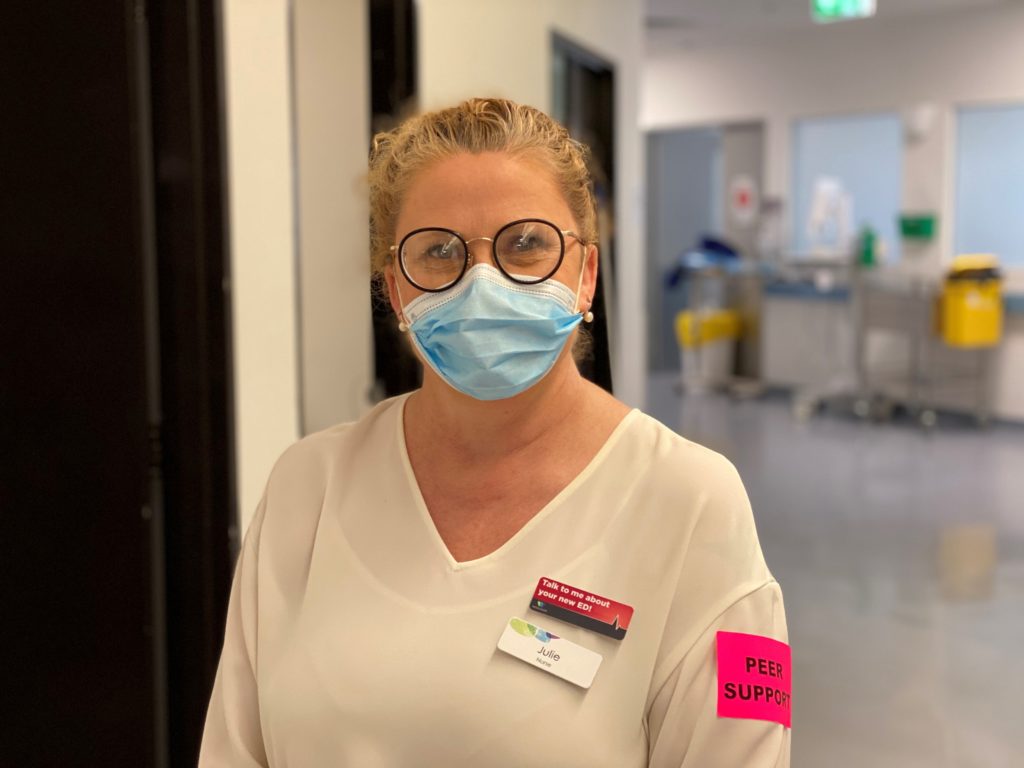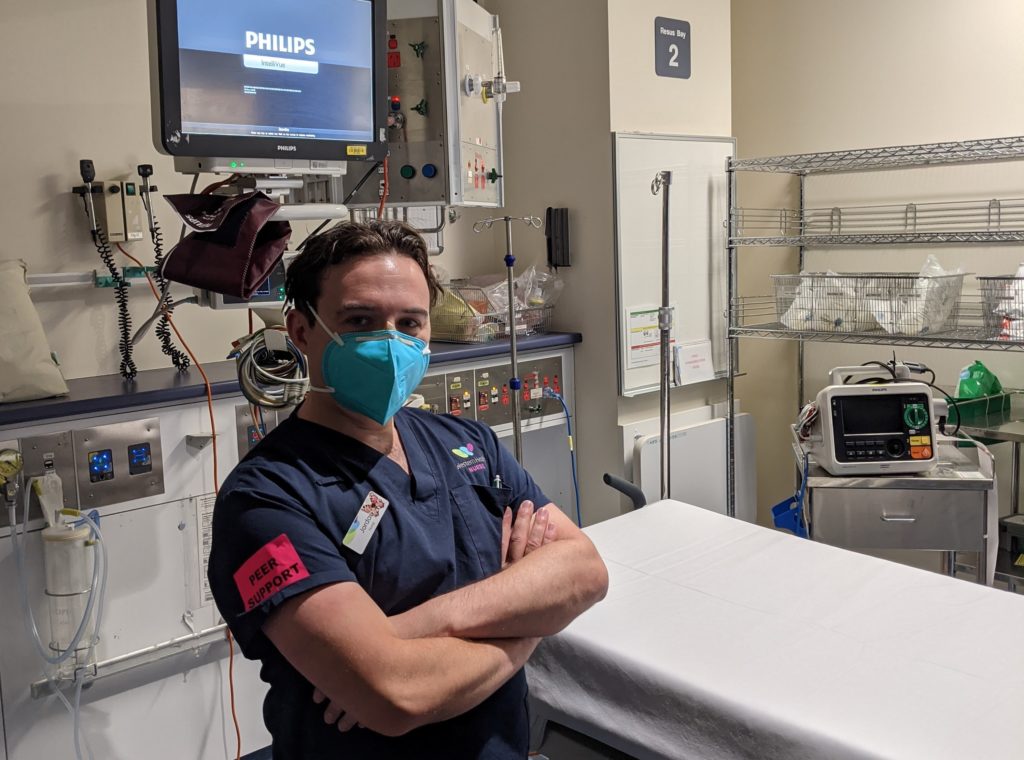A new peer support program in Sunshine ED is working to protect the wellbeing of staff as they deal with the challenging and often confronting work they undertake on a daily basis.
Julie Spencer, Associate Nurse Unit Manager at Sunshine Emergency Department has worked in ED and trauma centre settings for 30 years, and saw the positive impact peer support programs could have when she undertook a benchmarking process of programs in health services across Melbourne.
“Unfortunately, there are prevalent rates of occupational violence in emergency settings, and the impact this has on staff was the impetus behind creating a peer support program,” Julie said.
SHED’s Peer Support Program has been designed specifically to assist in making support services accessible to all staff. Whether for an informal chat or for more formal support, the service provided is directed by the staff member and can support staff in both personal and professional matters.
Jordan Lakin was one of the 17 staff trained in a two-day program by Caraniche, Western Health’s Employee Assistance Program Partner, with funding through Allianz.
“We recognize that a discussion with a peer is often exactly what is needed – and often far less daunting than speaking with a relative stranger- and we are here to signpost your way to other resources if need be,” Jordan said.
SHED’s Peer Support Team is made up of compassionate individuals representing all levels of the department, from junior nurses through to the NUM and all levels of medical staff.
The team aim to be available 24 hours a day, 7 days a week, with a rostered resource person accessible via a designated mobile phone, in person or via the Nurse-In-Charge. They are easily identified by their pink “Peer Support” sticker, and the rostered peer support is listed on the shift roster as well as the whiteboard in the staff base.
“With our collective experience we aim to assist you in finding the most positive outcome for you,” Jordan said.
The program operates in addition to the debriefing sessions that occur within ED after sentinel events, and the formal debriefs run by Cariniche.
The simple yet powerful philosophy of checking in with colleagues, making sure they are ok, and rallying around them has the potential to make a real impact, says Julie.
“I’ve seen first-hand that PTSD and compounding trauma doesn’t have as much of an affect when healthcare workers have had a peer support program in place,” she said.
“I don’t want the next generation to have the mental challenges and trauma that my generation has had in the workplace, if we can avoid it. We can’t avoid all the challenges staff face in ED, but we can help.”

